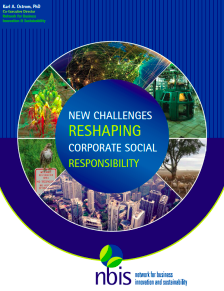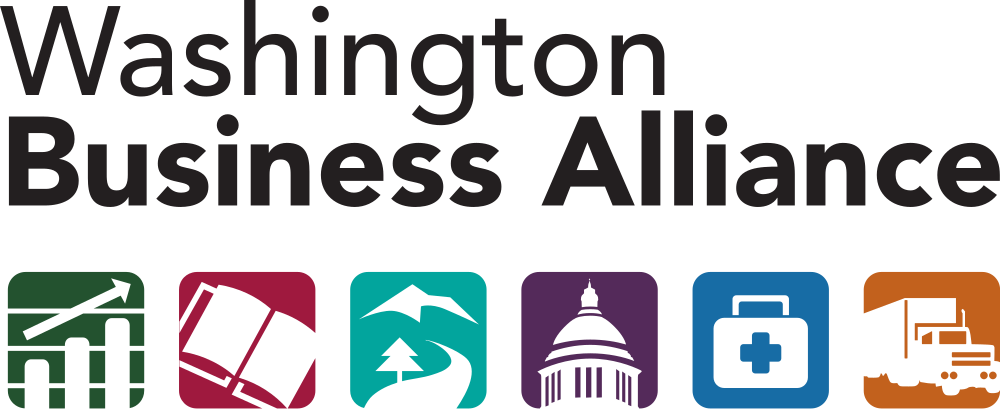Escalating environmental and social crises, such as climate change, demand a new approach to corporate social responsibility (CSR) that is capable of addressing the magnitude of these challenges. Although climate change is the most pressing issue, it is only one of several risks to our ecosystems and society that we may no longer be able to mitigate.
Worldwide we are using the equivalent of 1.5 planets to support a population of 7 billion, which is projected to top 9 billion by 2050. Inequities and struggles for scarce resources are already driving an increase in social unrest and violence and creating environmental refugees.
Ecosystem Degradation At a Time of Increasing Innovation
Paradoxically, our collective failure to rein in the degradation of ecosystems and gross social inequities is occurring in an era of exponentially increasing innovations that could be channeled toward living in harmony with nature.
Business has the tools — and indeed the responsibility — to lead innovative efforts that would change course to a sustainable path. Although business cannot do it alone, it is in a unique position not only to change corporate and supply chain practices, but to help shift consumer behavior and government policy.
THE ENLIGHTENED SELF-INTEREST OF BUSINESS, IN SUSTAINABILITY
Business contributes the largest share of global GDP, uses a centralized approach to planning and decision-making, and is able to leverage both politics and consumer decisions. Business is the leading source of innovation in our society and can move fast at scale. Business also has a vital interest in protecting the natural resources and stable social systems upon which sustainable profits depend.
….our present economic system was shaped in an environment where resources and waste sinks seemed relatively inexhaustible. Business made investments, reaped the rewards, and counted on the earth’s ecosystems to cover the external costs. Cumulative failures to internalize the environmental and social costs of the market system have created crises that are being compounded; not only are we breaching the “resilience boundaries” of regional ecosystems, but planetary ecosystems as well, and there is no turning back.

- Network For Business Innovation and Sustainability, 2014
“Collaboration Across Industries, Governments, and NGOs”
….(Consider) a new model for corporate social responsibility that moves beyond continuous improvement and incremental progress to reach milestones for true sustainability. Traditional CSR tools, such as “Lean,” lifecycle assessments, carbon footprinting, environmental management systems, and appropriate metrics and reporting, provide a solid foundation for moving ahead. Collaboration across industries, governments, and NGOs can move us toward sustainable capitalism and stewardship of a marketplace in which true costs are revealed, and incentives and price signals help innovation to thrive and scale up to ensure sustainability for generations to come.
Three Recommendations
1) Strengthen CSR practices through reporting that utilizes baseline metrics and targets improvements in lifecycle product attributes and social/environmental practices. For example:
Tackle sustainable consumption by making products endurable and recyclable from recycled materials, and sharable when feasible
- Participate in the Global Reporting Initiative
- Report to the Carbon Disclosure Project or Carbon Registry
- Utilize ISO certifications as appropriate
- Calibrate sustainability initiative targets toward zero impact
- growth
2) Expand the constituency of consumers committed to sustainability through education and branding.
- Branding is strategic because it inherently goes beyond price communication, appealing to emotions, loyalty, and cultural signals
- Branding becomes a tool to deepen employee engagement and stakeholder commitment to sustainable products
- Utilize eco-labels and product declarations to raise consumer awareness
3) Collaborate on marketplace stewardship with other companies and across sectors to shape a marketplace in which economic signals support healthy ecosystems and social well being. Collaborate with:
- Industry organizations to upgrade supply chain manufacturers’ practices, create advances in logistics, product design, etc. Examples: the Outdoor Industry Association, the Sustainable Apparel Association, the Green Building Council, Sustainable Food Trade Association
- Cross sector associations to advance sustainable business governance, practice, and collaboration around the world. Examples: B Lab, Business Alliance for Local Living Economies (BALLE), Business for Social Responsibility (BSR), World and US Business Councils for Sustainable Development, the Network for Business Innovation and Sustainability (NBIS), the UN International Labour Organisation, American Sustainable Business Council, Washington Business Alliance, Ceres, and Climate Solutions
…This decade places our business and political decisions in a unique historical moment. Advancements in geoscience enable us to visualize the future consequences of our environmental decisions on Earth’s ecosystems. Natural catastrophes go further by providing us with a real sensory and emotional preview of where we are heading if we don’t change course.
Socially, we see regionally intertwined movements and counter- movements of dissatisfaction whose directions are yet to be determined. We see the potential for moving toward shared prosperity with relative equality and tolerance for gender, ethnic, and religious diversity. Also, we see hardened withdrawal into sectorial boundaries defended with violence and aggression. Business has the technological tools, leadership potential,and marketplace know-how to take environmental and social sustainability to scale in a timely way.
The preceding is an excerpt from a white paper by Karl A. Ostrom, PhD, Co-Executive Director of the Network For Business Innovation and Sustainability. The paper is co-sponsored by the City of Tacoma, the King Conservation District, PCC Markets, Garvey Schubert Barer, Seed Edit, McKinstry, NRG Insurance, and PMI: read it in full.
* Editor’s Note: This is a guest authored piece and does not necessarily reflect the views of the Washington Business Alliance.
The Washington Business Alliance frequently features guest authored content on our blog Catalyst. If you would like to become a featured guest author, guidelines and information can be found in the post “Contribute To This Blog: Here’s How”.
